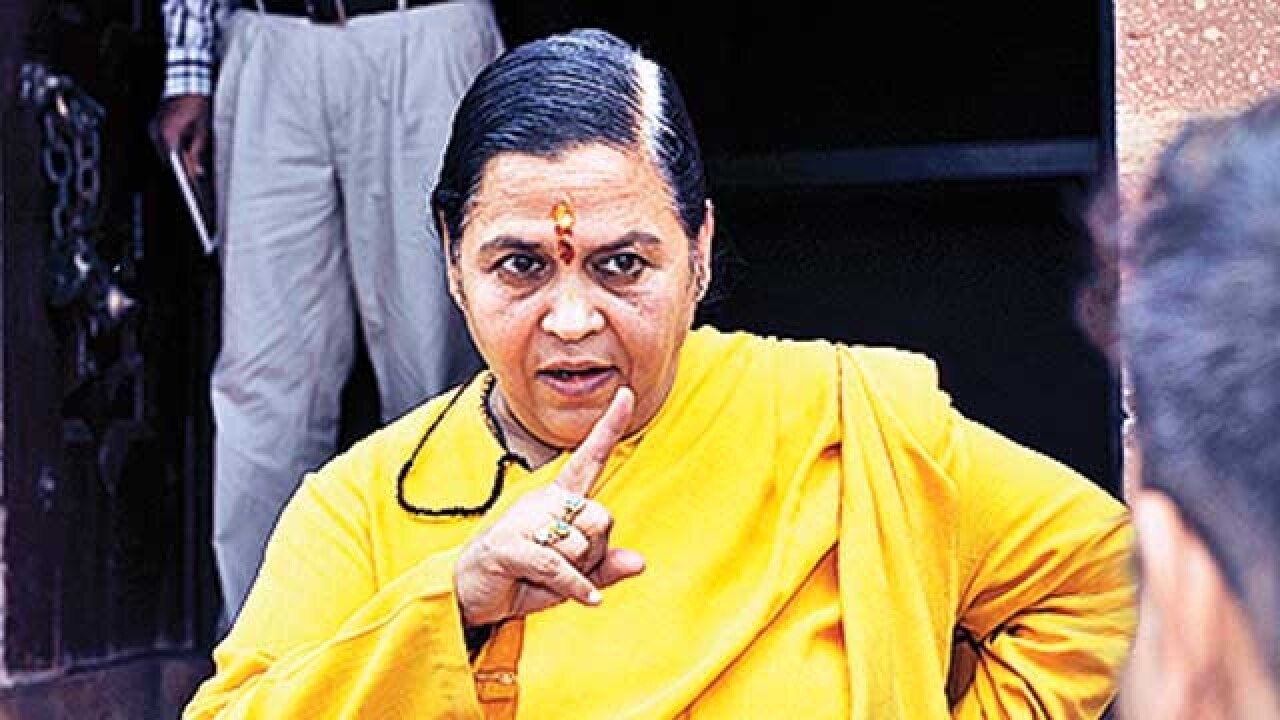
In a wide-ranging interview ahead of NDA’s third anniversary, Bharti spoke to DNA and was outspoken as ever. Bharti said that there needs to be more patience on the results from Namami Gange. She emphasized that while there were no differences with either the PMO or environment ministry on Ganga and Uttarakhand hydel projects, she firmly believes that projects should not kill the river and stem its ecological flow. Excerpts:
We have achieved in all fields; water resources, river development and Ganga rejuvenation. In PMKSY (Pradhan Mantri Krishi Sinchai Yojana), we have done exceedingly well. We are on course to complete 99 projects worth Rs.77,000 crore, funded by NABARD, ahead of timeline, by 2018 December… this, I feel, is the biggest leap irrigation sector has taken in 72 years.
If I have to single out an achievement, then it is Ganga, the planning on Ganga. I am more satisfied with the planning on Ganga (cleaning).
Yes. The planning part was very difficult and after the planning, the packaging part was very difficult. Ganga crosses 5 states and each state has a different problem. In Himalayas, the drying up, in Uttar Pradesh there is the pollution issue, you cannot it even release it after treatment. In Bihar, there is silt and in Jharkhand, there is arsenic. In Bengal, it is the vastness and incursion of saline water from the sea. Water is also a state subject and we were entering that domain. Thus, initially, we took care that nothing is left behind in planning. Even the World Bank head complimented us and said that no river project has been planned with such wholesomeness. Hence, planning was an achievement in itself.
But, it was still falling short as National Mission for Clean Ganga was registered as a society and it was later converted into an authority. If someone is wielding a spade, his hands should be strong enough to use it. A society could not have done what an authority can do. Converting it into an authority took six-seven months. This created a perception that there is a delay.
On this, I will say that yes, this has happened, it is a process. Earlier, EPC (Engineering, procurement, construction) mode was adopted and then hybrid annuity model was adopted. It did affect pace of work. If we had adopted the EPC, it would have happened through state governments, the tendering process would have compromised the quality. We could have brought visible changes through artificial means, but that would have been unsustainable. I would request patience from critics. If you want Ganga for years to come, you would need to be patient.
There are conversations, not differences. If they just accept what we have said, what is the point? So, there have been conversations, largely with the PMO, Finance ministry. The PMO has been very enthusiastic since it is their flagship project. Like in the case of NMCG, first as it was a society and now it is an authority, this happened after conversations. I would also like to say that even if there are differences, will I confess it? I will not.
There is a point of dispute, still, it is universal. That is the ecological flow in the river.
This (dispute) is with everyone. How much water does a river need to sustain and survive? How much blood do you need to survive? Have any project, irrigation or power, but how can you kill a river for a project. The river is created by the process of millions of years and the life of a project is maximum 100 years, maximum! So, how can you kill a million year process just for 100 years? … So, there is a dispute, a difference. The collective opinion will take time. It is a universal dispute on ecological flow for sustaining a river, because you cannot kill a river for a project.
I will take care that no dam, which will hamper Ganga, is allowed. I have the support of the environment ministry and PMO on it. I never believe in stopping a project, I myself commissioned the Indira Sagar project. I am not fundamentalist about it. If you can use a river for power generation, you must do it. But, care must be taken to see, that when you are creating the project, are you also destroying the qualities of the river?
It will help. In Uttar Pradesh, work had stopped. They were not issuing NOC’s for projects on Namami Gange. The problem with Akhilesh Yadav was, work on Ganga was divided; half with Azam Khan and half with Shivpal Yadav. For many reasons, he was scared of Azam Khan and he could not communicate with Shivpal. Their family dispute has damaged Ganga (project).
Ganga does not figure in the priorities of Mamata at all. I was in Kolkata, and nobody came from the state government to meet me or my officials. There is total non co-operation from Bengal and I think it is not a priority for Mamata Didi. I have written a letter to her, seeking a personal meeting over Ganga and I am waiting for her reply.
A: All previous Chief Ministers of the state - Khanduri, Nishank, Harish Rawat and now Trivendra Rawat – have repeated that they want a review of the eco-sensitive zone as it is not practical, implementable. So we have told the state government to form an expert committee to submit what they think it should be. Then water ministry and environment ministry examine that report.